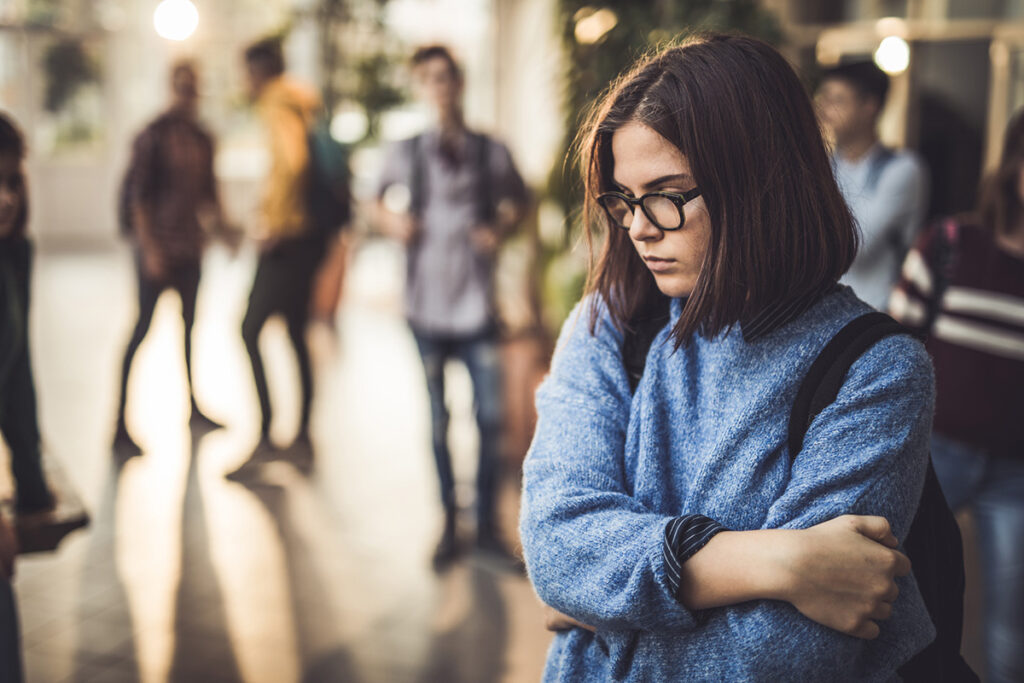How to Cope with Social Anxiety Disorder

Can you think of a time where you needed to get away from other people? Perhaps at a wedding? Or maybe an important dinner? It’s normal to need some “me time” every now and again. But, if you’re like me and struggle with social anxiety disorder, that social battery can hold about as much charge as your three-year-old iPhone — not much, if any at all. And after the pandemic, it seems as though I have an even lower capacity than before (as if that was even possible).
Luckily, I’m not alone. According to statistics from the National Institute of Mental Health, 12.1 percent of the United States population experiences social anxiety at some point in their lives.
A Misunderstood Disorder
Commonly known as social phobia, social anxiety involves the implication of an inherent fear of social situations. To those with social anxiety, it is not a fear of socializing, but rather it is the fear of being embarrassed or viewed as less than when attempting to make connections. And while this can be true in some, I (and many others who struggle with social anxiety) tend to crave social interaction and the feeling of belonging that comes along with close relationships, but we are held back by the fear of rejection.
In addition to the societal view of social anxiety, individuals who struggle may falsely assume that to be normal, they cannot feel anxious in any situation. This is false. To live with social anxiety is to accept that certain scenarios or events cause major stress and may be best to avoid, where others cause minimal anxiety and should be pursued. Identifying the scenarios in which you feel most comfortable and avoiding those that are uncomfortable will allow you to live a more socially active life, while mitigating your anxiety symptoms.
Identifying Triggers
The first steps to living a happy, fulfilled life with social anxiety is to identify the situations which trigger an anxious response. Once you identify your triggers, you can take steps to avoid or overcome them.
Common social anxiety triggers
Meeting new people: One of the most common triggers for individuals who struggle with social anxiety is meeting new people. It is the fear of the unknown – will they like me? Will they think I am odd? Or maybe that I am ugly?
Dating: Social anxiety can make dating difficult…or to be honest, almost impossible. Where meeting a platonic friend may be anxiety inducing, the very nature of a date – one-on-one, the pressure of perfection, the unknown – all amplify nervous feelings.
Attending parties: Large gatherings of people tend to offer some pause to those living with social anxiety – especially if the group is comprised of unknown faces. Parties are loud, energetic, and fast-paced (the perfect storm for an anxiety ridden event).
Eating in front of others: There may be different scenarios with eating that make people with social anxiety more anxious – for example, with friends or family versus eating alone. Perhaps you’re nervous about looking messy or how much is on your plate – whatever the reasoning, eating in social situations can be very anxiety inducing.
Using the restroom: Using a public restroom can be very nerve wracking. You may be anxious that someone is watching or listening and judging you for using the loo, regardless of whether it is a common and necessary human experience.
While the above triggers are common in people with social anxiety disorder, it is by no means an exhaustive list. Spend time to identify your triggers, including any situation where you feel symptoms of your anxiety. People who struggle with social anxiety can feel symptoms at different times and for a variety of reasons, and symptoms can range from minor to severe.
Symptoms
Symptoms can appear prior, during, or after a social event. For those with severe social anxiety, symptoms may feel constant as even minor social engagements can often be difficult. Common symptoms of social anxiety can include:




